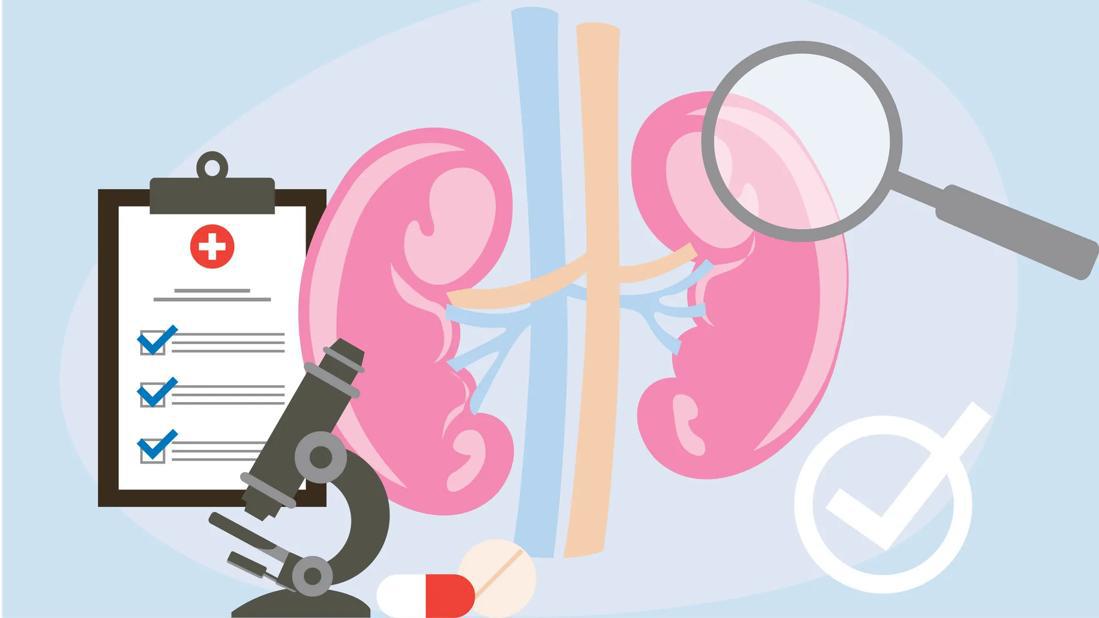Managing Symptoms and Slowing the Progression of IgA Nephropathy and C3G
You may not notice any symptoms of kidney disease until later stages

It often comes out of the blue. You feel fine. But the doctor says they found protein in your urine or high levels of creatinine in your blood. Your biopsy confirms it: You have kidney disease.
Now, you’re wondering what happens next. What’s it going to feel like living with IgA nephropathy (IgAN) or complement 3 glomerulopathy (C3G)?
We asked nephrologist Corey Cavanaugh, DO, for some insight.
When IgAN and C3G symptoms start
It’s rare to experience symptoms of IgAN or C3G unless they progress to late-stage kidney disease, which may or may not happen.
“You can be totally asymptomatic, particularly when you’re living with mild or moderate kidney disease,” Dr. Cavanaugh says. “In fact, it’s common to have kidney disease and not even know it.”
If your condition worsens, you’ll start feeling the impact of poor kidney function throughout your body. For some, the symptoms come on slowly. For others, the change is more obvious.
But the “if” is key when we’re thinking about disease progression.
Not everyone who has IgAN or C3G will experience a decline in kidney function over time. For some, the condition will never accelerate. Others find that medications are enough to keep things in check.
If your condition worsens and symptoms do appear, knowing what to expect can help. Dr. Cavanaugh shares common late-stage symptoms for people living with IgAN or C3G and how to slow your condition’s progress.
Stages of kidney disease
Kidney disease severity is classified into five different stages. Each stage is associated with your estimated glomerular filtration rate, a measure of how well your kidneys filter substances.
Stage 1 is very mild, while stage 5 is kidney failure — when your kidneys have stopped working or are close to it. Stage 5 is when your provider will recommend beginning dialysis or seeking a kidney transplant, if those are your wishes. (Note: You can be eligible to join the U.S. National Kidney Transplant Waiting list when you have stage 4 kidney disease.)
Dr. Cavanaugh says many people won’t have any symptoms of kidney disease until they reach stage 5. But some people notice symptoms beginning in stage 3.
“Oftentimes, the symptoms you feel associated with kidney diseases like IgA nephropathy or C3G come from a buildup of toxins that your kidneys can no longer clear out, which tend not to be noticeable until you reach kidney failure,” he explains.
Symptoms of kidney failure
Although kidney failure can feel different for different people, there are some common symptoms to keep an eye out for:
- Extreme tiredness (fatigue)
- Nausea and vomiting
- Confusion or trouble concentrating
- Swelling (edema), particularly around your hands, ankles or face
- Cramps (muscle spasms)
- Dry, itchy skin or rashes
- Poor appetite and unintentional weight loss
- Blood in your urine
- Uncontrolled hiccups
Slowing the progression of IgAN and C3G
Managing chronic illnesses that impact your kidney function can help slow the progression of conditions like IgA nephropathy and C3G.
Your kidney function impacts your whole body. So, when it declines, it can kick off other conditions (comorbidities). It’s a cycle: kidney disease causes other diseases. Those diseases make your kidney damage worse, which gives rise to new problems. And around and around we go.
The primary way you manage IgAN or C3G is by addressing the issues your comorbid conditions cause, in the hopes of slowing or stopping new organ damage.
“One of the most common complications of kidney disease is high blood pressure,” Dr. Cavanaugh reports. “Managing your blood pressure is very important to slowing the loss of kidney function.”
Reduced kidney function raises your risk of developing:
- Low red blood cell count (anemia)
- Weak and brittle bones
- Gout
- High potassium (hyperkalemia), which affects your heart’s ability to function correctly
- High phosphorus (hyperphosphatemia)
- Acid buildup (metabolic acidosis)
If you develop any of these conditions — or others — managing them (with your provider’s help) is crucial. Not addressing comorbidities can increase the burden on your kidneys and accelerate the damage. It may even mean having to start dialysis sooner.
After being diagnosed with IgA nephropathy or C3G, visit your provider regularly to assess your kidney function, as well as your overall health.
If you’re living with a chronic condition or are at risk of developing one, your provider will likely prescribe medications and suggest lifestyle changes, like adjustments to your diet and exercise routine.
Final thoughts
No one wants to have to manage a chronic condition like kidney disease. And no one wants to have to consider a future on dialysis or waiting for a transplant. But if you’ve been diagnosed with IgA nephropathy, C3G or another kidney disease, it’s important to understand your condition.
Do your research. Track your health. And ask your provider about steps you can take to slow your condition’s progress and minimize its effects on your life.